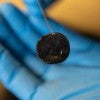
Bacterial sensors send a jolt of electricity when triggered
Rice researchers develop programmable bacteria that sense contaminants and release an electronic signal in real time.

Bacterial sensors send a jolt of electricity when triggered
Rice researchers develop programmable bacteria that sense contaminants and release an electronic signal in real time.

NSF backs bid to speed environmental tests for viruses
The NSF backs Rice University efforts to speed the analysis of wastewater for coronaviruses from hours to seconds.
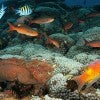
Climate risks for Gulf of Mexico coral reefs spelled out in study
Promptly reducing greenhouse emissions would give Gulf of Mexico corals up to 20 extra years to adapt to critical threshold temperatures, according to Rice research.

See nature like (and with) a biologist in new online courses
Online learners can follow Rice biologist and author Scott Solomon into the wild through an engaging series of courses focused on ecology, evolution and biodiversity.

Rice lab grows macroscale, modular materials from bacteria
Rice bioscientists have created bacteria that self-assembles into a material like putty that could soak up pollutants.

Onuchic wins top Biophysical Society honor
José Onuchic wins the 2023 Founders Award presented by the Biophysical Society.
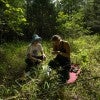
Can fungi help Texas’ grasses cope with climate change?
Rice biologists are using Texas as a living lab to study how symbiotic fungi help grasses tolerate drought.
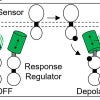
Glowing tags reveal split-second activity of pathogenic circuitry
Rice bioengineers have created the first tool for observing the real-time activity of biology’s most ubiquitous signal-processing circuits.

Reconstructing ice age diets reveals unraveling web of life
Rice-led research published in Science offers a clear picture of the consequences of land mammal declines on food webs.
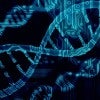
Biomedical, data science training wins new grant
The Rice University NLM Training Program in Biomedical Informatics and Data Science wins a $4.16 million National Library of Medicine grant.
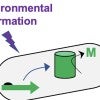
Rice team eyes cells for sophisticated data storage
Rice University receives National Science Foundation support to turn living cells, starting with bacteria, into random-access memory devices. These will be able to store and report data about their environments.
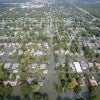
Rice experts available to discuss 5th anniversary of Harvey
As the fifth anniversary of Hurricane Harvey approaches, Rice University experts are available to discuss the storm’s ongoing impact.
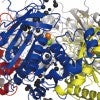
Rice models moving ‘washers’ that help DNA replicate
Rice researchers model a key mechanism by which DNA replicates. The study could help identify new targets to treat disease.

Team led by Rice’s Saltz wins grant to examine environment’s impact on fruit flies
Rice University researcher Julia Saltz and two co-principal investigators have received a $1.4 million grant from the National Science Foundation to investigate and model the underlying factors of genetic variation in trait development in fruit flies across environments and over generations.
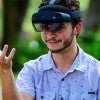
VegSense makes sense for forest studies
Rice ecologists have created open-source software to rapidly gather field data with Microsoft’s mixed reality headset.